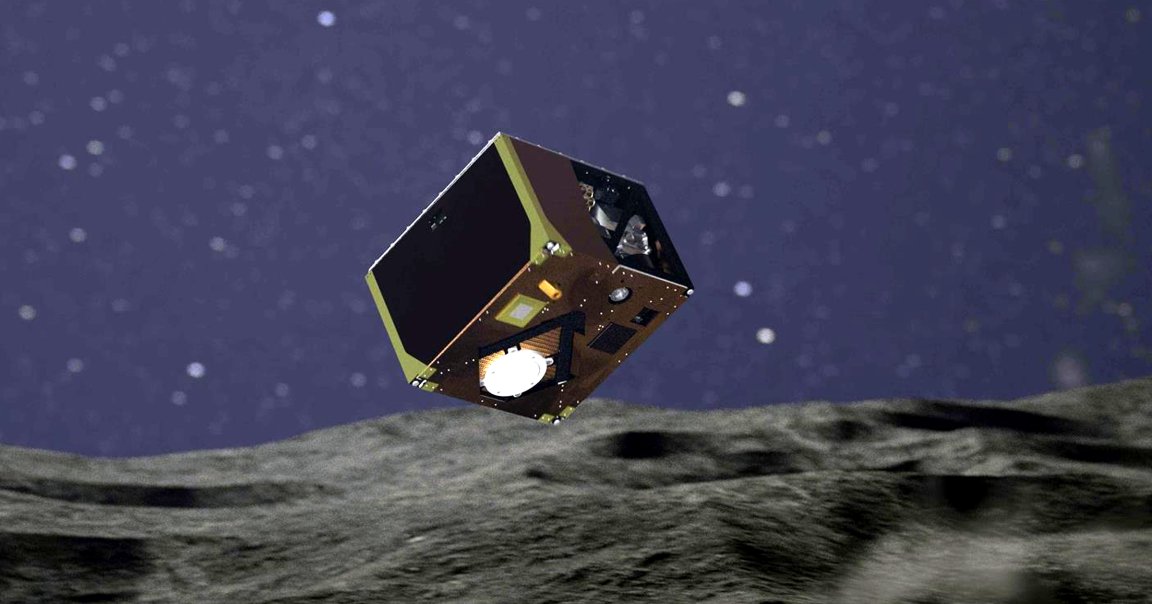
Gone
MASCOT’s lifespan was shorter than the average mayfly’s, but we’d like to see an insect accomplish half of what this robot did during the 17 hours it bounced around the asteroid Ryugu.
The German Aerospace Center built MASCOT, which is short for Mobile Asteroid Surface Scout, with help from the National Centre for Space Studies, France’s space agency, and it was one of several bots to hitch a ride to Ryugu aboard the Japanese spacecraft Hayabusa-2.
The shoebox-sized robot only just touched down on the asteroid on Tuesday, but by Thursday morning, the people running MASCOT’s Twitter account declared its demise.
But Not Forgotten
While on Ryugu, MASCOT used four instruments — a camera, a spectrometer, a magnetometer, and a radiometer — to gather data about the small rocky body 180 million miles from Earth. It transmitted that data back home. Scientists will now study it to attempt to improve our understanding of asteroids, and maybe even the origin of our solar system.
Researchers projected MASCOT’s non-rechargeable lithium-ion battery would only provide power for 16 hours, so really, the bot was on borrowed time when it finally powered down. And isn’t a longer-than-expected life full of adventure all anyone — robot or otherwise — can hope for?
READ MORE: RIP, MASCOT: Hopping Lander Meets Its End on Asteroid Ryugu [Space.com]
More on Ryugu: A Pair of Japanese Robots (Hopefully) Just Landed on an Asteroid